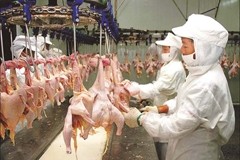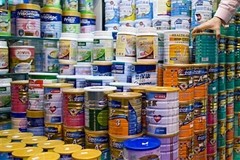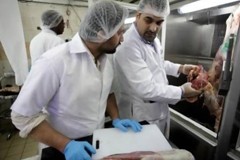Food safety
Chinese premier tells agencies to get tougher on food crime

Speaking at a nationwide teleconference about the functional transformation of institutions under the State Council, China’s cabinet, Li demanded that government departments delegate more responsibilities across their purview to fully supervise the market.
They should also focus their attention on areas that are most clearly in the public eye, such as food safety, he stated.
"The perpetrators must pay such a high price that they can not afford," said Li. “Although we have a tight budget, we should invest enough in strengthening supervision measures at the grassroots level."
Fake meat
The China Food and Drug Administration (CFDA) has already responded to Li’s calls and ordered local authorities to tighten scrutiny on the production and sale of fake meat products. This follows incidences earlier this month of rat, fox and mink meat being sold as mutton in Shanghai—a practice that is estimated to have generated RMB10m (US$1.6m) for the perpetrators before it was busted by officers from the Ministry of Public Security.
The CFDA also told local authorities to increase incentives and protective measures for whistle-blowers to encourage citizens to help in the effort, and to make sure that carcasses are handled properly.
Health food targeted
Meanwhile, Chinese food safety authorities are preparing to crack down on illegal activity related to health food, according to the country's food and drug safety watchdog.
The CFDA will run a nationwide campaign until September to target the illegal production and sale of health food, the administration’s spokeswoman, Yan Jiangying, said at a press conference in Beijing.
This will be the CFDA’s first campaign since it launched in March as a ministerial-level agency to monitor functions across a number of food-related government departments.
China’s consumption of health food, or dietary supplements, has increased rapidly in recent years, Yan said.
Indeed, she reported that at the end of last year, over 2,000 companies were engaged in the health food business, reporting total revenues of RMB280bn (US$45bn), and claimed that illegal activity had grown significantly over that period, including the use of illegal additives in dieting supplements.
The campaign will be the first in a series of measures to be conducted by the CFDA to improve food safety, she said.












